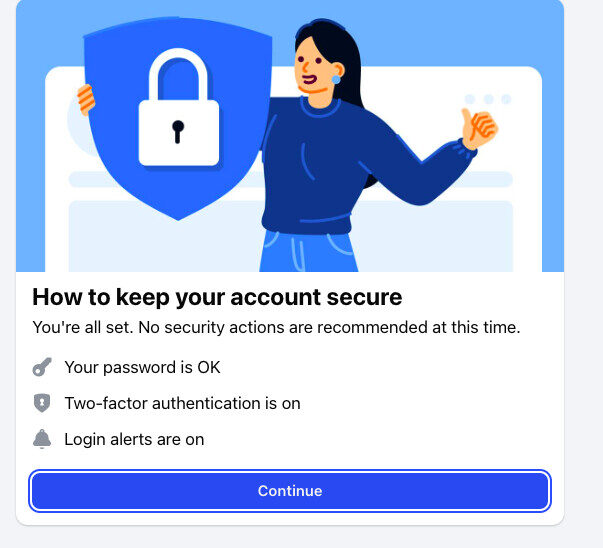Facebook hacking is a growing concern in today’s digital world. While many believe hacking means breaking directly into Facebook’s servers, the truth is different and more personal: hackers often target users through tricks like phishing, weak passwords, and social engineering. Understanding how Facebook hacking actually happens and learning how to protect yourself is essential to keeping your personal information, privacy, and online identity safe. In this article, we’ll explore the common methods hackers use, why Facebook itself is secure, and most importantly, what practical steps you can take to prevent and recover from hacking attempts.
🔍 Is Facebook Hacking Really Possible?
The idea that someone can “hack” Facebook directly — like breaking into its servers — is a myth. Facebook hacking in this context is extremely unlikely, especially in 2025. Meta has advanced security infrastructure. The platform monitors:
- Your device history
- Last and current IP addresses
- Login locations
- Session behavior
- Unusual access patterns
Unless you personally assist the attacker, your Facebook account is safe from external hacks. In nearly all cases, the breach happens through you, not through Facebook.

⚠️ So How Do Facebook Accounts Get Hacked?
It’s not about breaking into Facebook’s systems. It’s about manipulating you — the user. The real threat comes from:
🔑 1. Weak Passwords
Using predictable passwords like your name + 123 or your phone number is a direct invitation to hackers. Always use a strong password:
- At least 12 characters
- Includes uppercase and lowercase letters
- Includes special characters and numbers
Example:Fpe!8729ktdhk1#
🛡️ 2. Lack of Two-Factor Authentication (2FA)
Without 2FA, even if someone guesses your password, they can enter your account. Use Google Authenticator, SMS verification, or email OTPs to stop unauthorized logins.
🎣 3. Phishing Attacks
This is one of the most popular methods in Facebook hacking. You may be tricked into clicking a fake Facebook login page that looks real. If you enter your credentials there, the hacker instantly receives your username and password.
Facebook apps rarely ask for re-login in the middle of your activity. If you suddenly see a login prompt out of nowhere, be cautious — it’s probably a phishing attempt.

🧠 Why Facebook Hacking Isn’t Easy in 2025
If hacking Facebook was easy, hackers would target billionaires, politicians, and celebrities. Gaining access to their conversations, photos, and private messages could be used for blackmail — demanding millions in exchange for silence.
But that rarely happens. Why?
Because Facebook uses AI-based security, IP tracking, device fingerprinting, and suspicious login detection. Any large-scale breach would trigger global lawsuits and result in enormous fines against Meta.
So again, Facebook hacking happens not because the system is weak, but because users fall for tricks.
🤖 Brute Force Attacks? Not Effective Anymore
Yes, I know about brute force attacks — but they are practically useless in modern systems like Facebook. Facebook detects repeated failed attempts and responds by:
- Locking the account temporarily
- Blocking IP addresses
- Asking for CAPTCHA or 2FA
This makes brute force attacks highly inefficient for hackers in 2025.
🔥 Real Danger: If Your Phone Is Hacked
If a hacker gains access to your phone, they don’t just have Facebook. They have:
- Your 2FA codes
- Your password reset emails
- Your saved logins and cookies
They can reset passwords, read OTPs, and take over not just your Facebook — but your entire digital life.
Tip: If you think your phone is compromised:
- Disconnect from Wi-Fi
- Use a trusted device to change passwords of key accounts
- Backup personal photos and contacts
- Factory reset your phone
✅ What to Do If Your Account Gets Hacked
🧩 Case 1: You Still Have Access
- Go to Settings → Security → Devices
- Log out of all devices
- Change your password
- Enable 2FA https://accountscenter.facebook.com/password_and_security
- Remove unknown apps or browser extensions
🚨 Case 2: The Hacker Changed Everything
If the hacker already changed your:
- Password
- Phone number
- Username
Then follow these steps:
- From a friend or family member’s Facebook account, search for your name.
- Go to your old profile → Copy the URL, which will look like:
https://www.facebook.com/profile.php?id=61566595379263
That number is your Facebook User ID — it cannot be changed and is unique to your account. - Visit the Facebook Help Center and report the hack:
- Use options like “I lost access to all contact methods”
- Choose to upload a valid government-issued ID
- Facebook will verify Your identity and, if successful, restore access to your original profile — including email, password, and username.

🧠 Final Advice: Know the Game to Win the Game
Facebook hacking isn’t magic — it’s a psychological and technical game. Once you understand how hackers operate, you can take control.
- Don’t reuse passwords
- Never trust unknown links
- Lock your phone like it’s your identity
- Set up 2FA everywhere
- Stay informed, not afraid

💬 A Message from SafeMe: Crime Prevention Begins Before It Happens
At SafeMe, we believe that crime prevention doesn’t start after the damage — it starts before it begins.
Whether it’s a physical attack, online blackmail, or Facebook hacking, our job is to protect lives, privacy, and dignity before it’s too late.
We provide tools, education, and fast-response support. And when victims need help — especially urgent medical care due to crime-related trauma.
Read More Articles
How to Save a Life During a Medical Emergency
How to Stop Crime: Community-First Prevention that Works
SafeMe has launched its medical fundraising

SafeMe has officially launched its medical fundraising platform to support individuals facing urgent health emergencies. Read more
